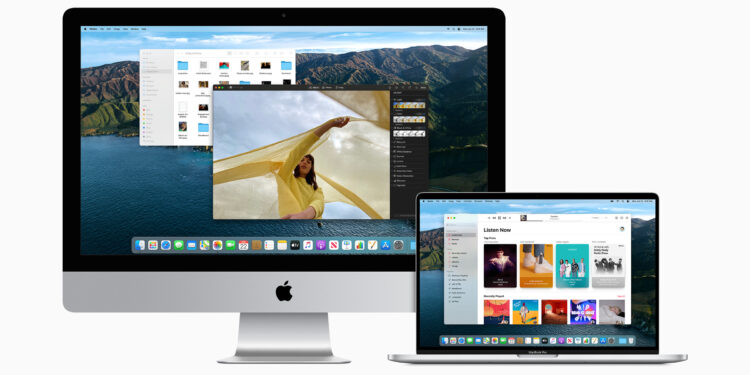Apple has moved away from Intel-based Macs since 2020 and is now fully committed to its own Apple Silicon technology. This transition has brought many benefits to the performance and efficiency of Mac devices, but it leaves the question open: how long will loyal Intel Mac users continue to receive software support? Below you will find a detailed overview of the current support situation and what the future holds for Intel Macs.
Apple announced the switch to Apple Silicon in 2020 and has since equipped every new Mac model with its own chips. The benefits of this change are clear: Apple Silicon offers impressive performance, longer battery life and deeper integration of hardware and software, resulting in an overall improved user experience. For owners of older Intel Macs, however, the question is how long their devices will remain relevant as Apple increasingly focuses on its own chip architecture.
The status of support for Intel Macs
The current situation with macOS Sequoia
With the latest macOS version, macOS Sequoia, Apple has already ended support for many older Intel Macs. The remaining Intel models that still receive updates include:
- 2018 Mac mini
- 2019-20 iMac models
- 2017 iMac Pro
- 2020 MacBook Air
- 2018-20 MacBook Pro models
- 2019 Mac Pro
These devices were released shortly before or during the transition to Apple Silicon and therefore still have limited support. The MacBook Pro 2018 in particular has received continuous software updates to date, as it is equipped with the 8th generation Intel Core i5 and i7 chipsets that can be found in several models of those years. Apple seems to be maximizing the transition period for users to allow them to use it for a longer period of time.
exceptional case iMac Pro
An interesting exception is the iMac Pro, which was introduced in 2017 and has already exceeded the usual support period of 5-6 years. Apple obviously wants to support professional users who may depend on the stable performance of this powerful device. This is good news for iMac Pro users, but the time for new software updates could soon run out here too.
What awaits us in the next few years?
Given Apple's support approach so far, it's safe to predict that macOS 16, expected to be released in 2025, could be the last version to support Intel-based Macs. Models like the 2019 iMac or 2018 Mac mini could then lose support. macOS 17, expected to be released in 2026, will likely be the first version exclusive to Apple Silicon. So after 2026, it will become increasingly difficult for Intel users to get macOS updates. Since Apple usually provides security updates for about two years after feature support ends, Intel users could still receive security patches until about 2028. After that, however, it will probably be over for good.
What does this mean for Intel Mac users?
For you as an Intel Mac owner, this means that you should think about upgrading to Apple Silicon in the next two years. While your device will probably still receive updates until 2026, you will have to prepare for the loss of new macOS features after that. Security updates could still be available to you until 2028, but without feature updates it will become increasingly difficult to use modern software smoothly. If you are considering switching to Apple Silicon, there are already numerous attractive offers, especially for the M2 MacBook Air, which is currently available at a historic low price of 999 euros is available on Amazon.
New technology, new opportunities: Why switching to Apple Silicon is attractive
Apple has a clear strategy: the transition to Apple Silicon will shape the future of the Mac line. For Intel Mac users, this means that the time for software support is limited. Consider whether switching to Apple Silicon makes sense for you, especially if you want long-term support and the latest features. With attractive offers on Apple Silicon devices, now is a good time to consider making the switch and benefit from Apple's new technology. Looking for the best accessories? Visit our Amazon Storefront and discover a variety of products from top providers, including for HomeKit! (Image: Apple)





